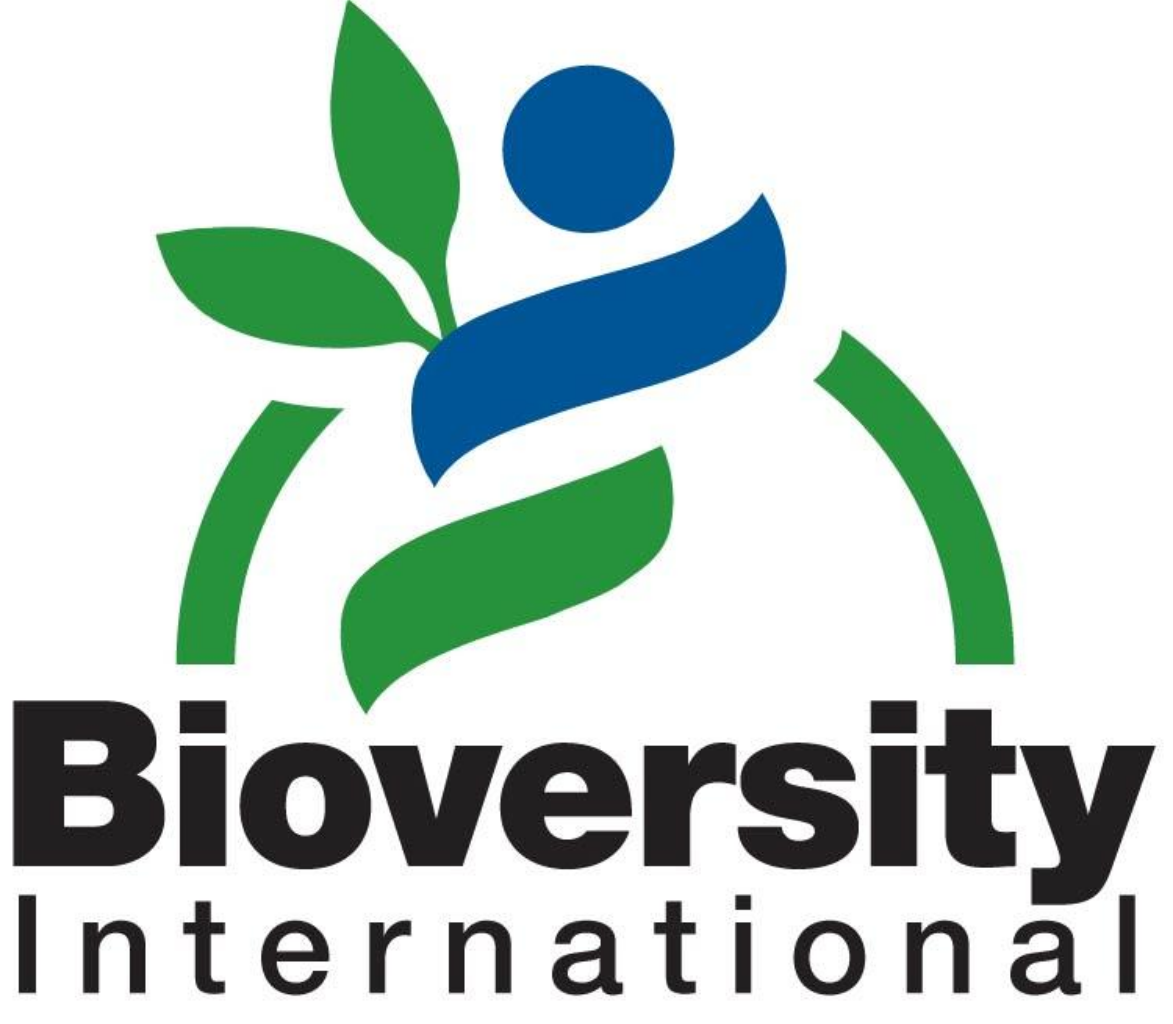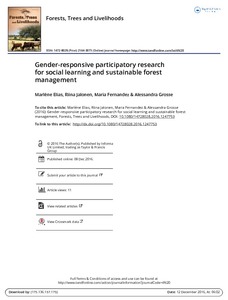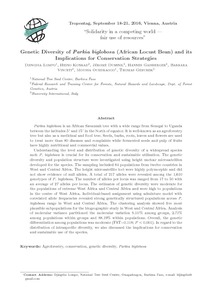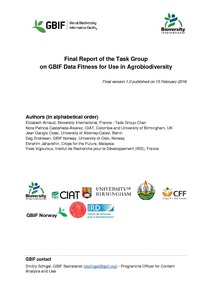Location
Bioversity International is a global research-for-development organization. We have a vision – that agricultural biodiversity nourishes people and sustains the planet.
We deliver scientific evidence, management practices and policy options to use and safeguard agricultural and tree biodiversity to attain sustainable global food and nutrition security.
We work with partners in low-income countries in different regions where agricultural and tree biodiversity can contribute to improved nutrition, resilience, productivity and climate change adaptation.
Members:
Resources
Displaying 51 - 55 of 184How does implementation of the Nagoya Protocol on Access and Benefit-Sharing affect biodiversity research?
In 2014 the Nagoya Protocol on Access and Benefit-sharing took effect and is being implemented by countries. This is important for fair and equitable sharing of benefits derived from genetic resources. However, scientists are concerned about its effect on non-commercial research, which has scientific, societal and environmental benefits beyond commercial gains. Such research may be delayed by cumbersome procedures and hampered by poor understanding of its scientific purposes and research requirements.
GnpIS-Ephesis, the phenotypic data integration platform for INRA networks experimental data – data discovery and dataset building use cases
Phenotype data are collected in trials conducted by experimental facilities including multilocal field networks and high throughput phenotyping facilities in controlled environments or fields. A given germplasm panel can therefore have been phenotyped in very different conditions and using very different protocols. As a result, a collection of phenotype datasets is usually highly heterogeneous and hard to integrate.
Gender-responsive participatory research for social learning and sustainable forest management
Genetic diversity of Parkia biglobosa (African locust bean) and its implications for conservation strategies
Parkia biglobosa is an African Savannah tree with a wide range from Senegal to Uganda between the latitudes 5 and 15° in the North of equator. It is well-known as an agroforestry tree but also as a medicinal and food tree. Seeds, barks, roots, leaves and flowers are used to treat more than 80 diseases and complaints while fermented seeds and pulp of fruits have highly nutritional and commercial values.
Final report of the Task Group on GBIF Data Fitness for Use in Agrobiodiversity
Human wellbeing and food security in a changing climate depend on productive and
sustainable agriculture. For this, policies based on analyses and research results are vital to
establish conservation priorities of natural resources that underpin the enhancement of
sustainable food production. Therefore, data from agrobiodiversity and wider biodiversity sources





